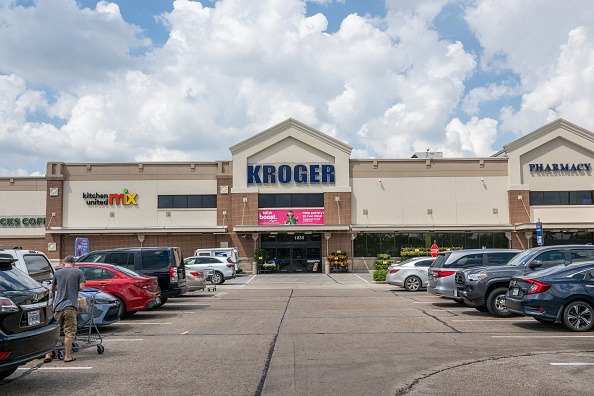This REIT Wins Playing Defense
Corporate Office Properties Trust specializes in defense-related tenants, inoculating the company against economic downturns
Not even a worldwide pandemic can stand in the way of the master plan for Corporate Office Properties Trust (OFC), according to executives at the Columbia, Md.-based real estate investment trust, or REIT.
The company’s leadership decided a decade ago to sell most of its commercial office space and instead specialize in providing highly secure offices for the U.S. Department of Defense (DoD), the intelligence community and defense contractors, says CEO Stephen E. Budorick.
Defense spending tends to remain strong in good times and bad, shielding the company from the ups and downs of a fickle economy, he notes. The government and its contractors use the offices for intelligence, surveillance, reconnaissance, research, development, testing and evaluation.
Over the years, dedication to the sector has made the company the “quintessential REIT,” positioned to pay unwavering dividends as profits grow and share prices appreciate, says Stephanie M. Krewson-Kelly, vice president of investor relations.
“We are absolutely unique in the public environment,” Budorick maintains. “We represent a very safe, secure investment.”
The history
The shift from commercial to defense-oriented real estate was already proceeding under then-CEO Roger A. Waesche Jr. when Budorick joined the company as CIO in 2011. Budorick became president and CEO in 2016 and continued the defense-centered policy.
Over six or seven years, the company “undiversified” by selling half its property, Budorick recalls. It shrank from 22 million square feet to 11 million square feet and used the proceeds from divesting what he calls “commodity” office space to develop 8 million square feet of defense IT space.
Space now under development will bring the company back to
22 million square feet, he says.
About 88% of the company’s revenue comes from defense-related tenants, and the remaining 12% flows from commercial real estate. Of the 88%, the federal government pays for 35%, and defense contractors account for 53%.
About 9% of revenue comes from a multi-tenant wholesale data center in Manassas, Va., that’s designated a secure “Tier 3” facility that safeguards confidential information. Renting space in the data center “shell” enables tenants to devote their capital to buying or developing equipment instead of buying real estate.
The tenants at the data center and the defense-related offices require so much secrecy that a third of Corporate Office Properties Trust employees have obtained the highest government security clearances.
The company developed properties near defense-related activities, with about half in Maryland and half spread across Virginia, Alabama and Texas. The need for proximity to defense operations gives the company a geographic profile that differs significantly from the usual office REIT concentration in the central business districts of a few of the nation’s largest cities.

Big profits ahead?
The transformation into a defense-oriented office REIT hasn’t been cheap. Consequently, the company’s profits have remained stagnant for several years, Budorick reports. “You sell a building, you lose that cash flow immediately,” he says. “You’re replacing it over a number of years with a new asset.”
But the company was scheduled to reach an inflection point this year and post strong earnings for the first time in a while. Next year and thereafter, the company expected especially robust growth.
“We’re in a position to predictably and regularly grow our FFO (funds from operations) through strong operating fundamentals, but also through external growth from the new developments coming online,” Budorick says.
Corporate Office Properties Trust can comfortably recycle about $300 million back into development annually without much need for outside capital and without skimping on investor returns, he predicts.
Potential investors have understood the company’s position, Budorick contends, but have remained “in the ‘show me’ mode and want to see us deliver growth.” If the company achieves his prediction of 2% to 3% growth this year and stronger growth in subsequent years, stock prices will rise accordingly, he says.
“The pandemic has really reminded people of the strength of our company,” Budorick continues. “Our company has better credit, a better balance sheet, better assets.”
COVID-19 immunity
For the most part, the pandemic has done little to derail the company’s plans. In April, it collected 98.8% of its rent, compared with a national average for office REITs of 91.5% for the month, Budorick says. May numbers were similar, he notes.
For smaller tenants, like locally based cafeteria operators in government office buildings, the company granted three months of free rent in exchange for two-year leases that kept the deals nearly revenue-neutral, and they represented .75% of the company’s annual rents. Larger commercial tenants tended to prefer extensions as they adjusted to the pandemic.
Heated commentary about reconfiguring offices for social distancing has roiled the media lately but doesn’t faze Corporate Office Properties Trust, according to Budorick. If government or contractors need more space for social distancing, rent will increase, not decrease.
Corporate Office Properties Trust plans to pay big dividends as profits grow and share prices appreciate.
In one example of today’s thinking, the coronavirus did not deter the DoD from signing a post-outbreak contract with no modifications to its pre-outbreak plans.
Moreover, working from home isn’t an option when government secrets are involved. “Sixty-five percent of our lease space is either in a secure campus or has attributes built into the space called ‘skiff’ (sensitive compartmented information facilities), Budorick says. “They are performing missions in those spaces at the highest security level of the U.S. government. That work cannot leave the office.”
Another 20% of the activities in the company’s offices is at a lower security level than skiff but is still too sensitive to conduct outside the office. That means a total of 85% of what happens in the company’s buildings can’t become part of the pandemic work-from-home trend.
Another COVID-19 fear—infection on public transportation—poses little threat for the company. Most of its properties are located in suburban or rural locations instead of the big-city downtowns favored by most office REITs. Employees commute by car, not bus or train.
Problem solved
Although catering to the defense sector can cushion against economic woes, uncertainty can still creep into the business.
The Budget Control Act of 2011, for example, reduced the defense budget for seven years, causing agencies to cut square footage and pack workers into tighter spaces, Budorick says. The legislation also dictated that the lowest bid that met technical criteria won the contract. Competition heated up, and REITs paid strict attention to margins.
In the last four years, however, defense spending has increased, much to the benefit of the Corporate Office Properties Trust. Pandemic aside, the REIT’s master plan seems to be working.





















